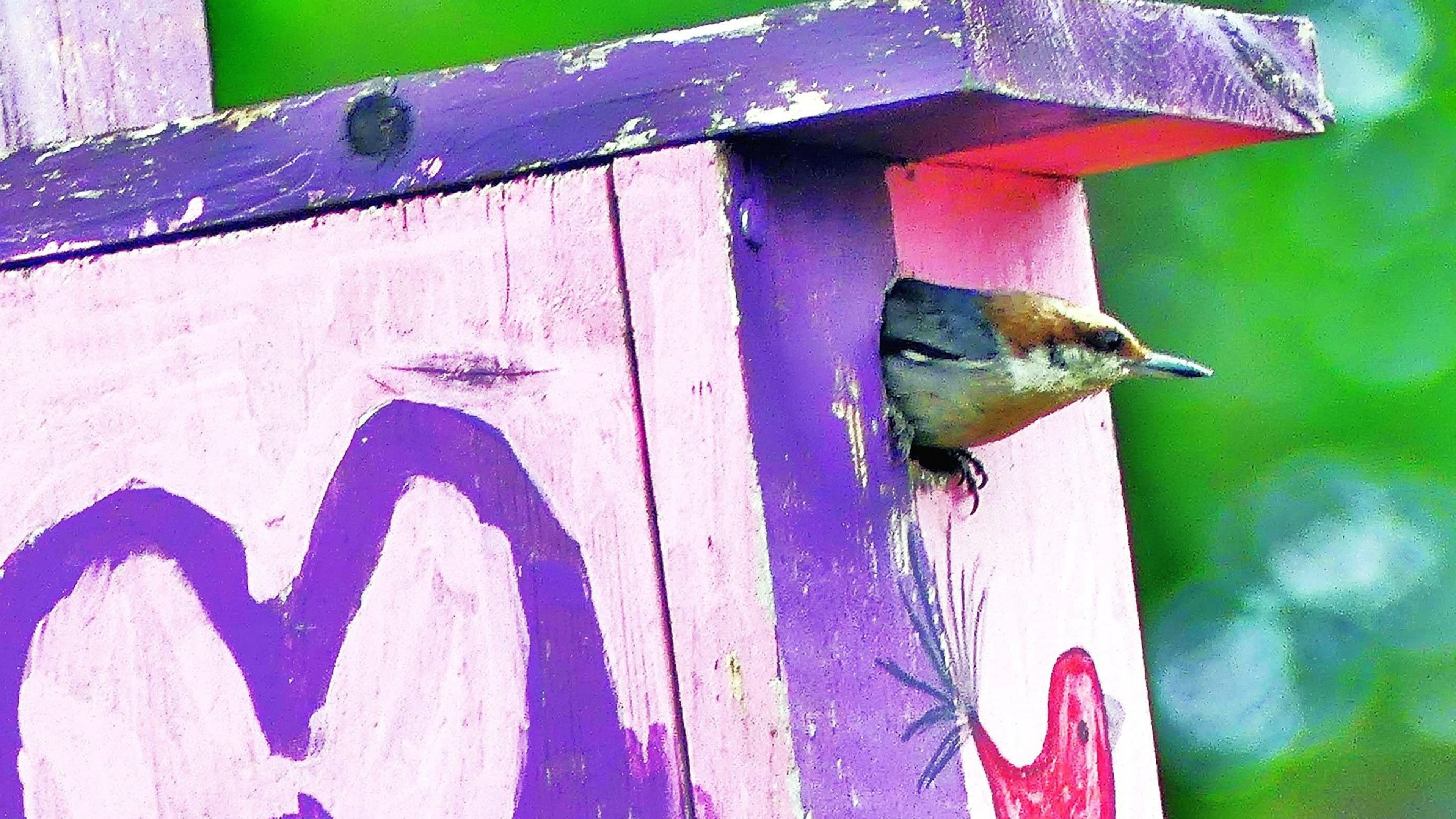WILD GEORGIA: Birds of different feathers help each other

Charles Seabrook’s “Wild Georgia” column appears weekly in The Atlanta Journal-Constitution.
While in a DeKalb County garden last weekend I glanced at a birdhouse attached to a dead cedar tree and saw a tufted titmouse with a fecal sac in its beak poking its head from the entry hole.
Nothing unusual there — a nesting titmouse tidying up its nest. (A fecal sac is a tiny packet of body excrement encased in a mucous membrane that makes it easier for songbird parents to remove their babies’ wastes.)
Two minutes later, however, a brown-headed nuthatch with an insect in its beak flew to the same hole and fed the morsel to a nestling inside, and then flew off again. Presumably this activity continued most of the day.
What was going on? I surmised it was perhaps one of two things — titmice and nuthatches, both cavity nesters, were nesting together and helping each other rear babies. Or, one of them was a “helper bird” assisting the parents.
Such behaviors, I have learned, are not uncommon, part of what is called “interspecific cooperation” in which birds of different species help each other for mutual benefit. It’s not unusual, for instance, for titmice to have nest helpers of a different feather. (Titmice’s own offspring also may stick around to help raise another brood.) In other cases, birds of two difference species may share a nest if competition for nesting sites is severe.
A key study in 1982 by Western Michigan University researcher Marilyn Shy cited 140 cases of such habits. One observation: A pair of cardinals and a pair of song sparrows shared a nest in raising their broods. Another: A male cardinal became a “helper bird” and fed American robin nestlings after his own nest was destroyed by a storm.
Some reasons a bird may become a helper are that its own nest or brood is destroyed, or, it can’t find a mate. Nevertheless, its natural instinct to raise a family remains overwhelming.
IN THE SKY: From David Dundee, Tellus Science Museum astronomer:
The Aquarid meteor shower peaks this weekend at about 60 meteors per hour. Best viewing: In the northeast sky from about 1 a.m. until dawn.
The moon will be full on Thursday. Venus is low in the west just after dark and sets less than an hour later. Mars rises about four hours before sunrise. Jupiter and Saturn rise in the east just before midnight.

